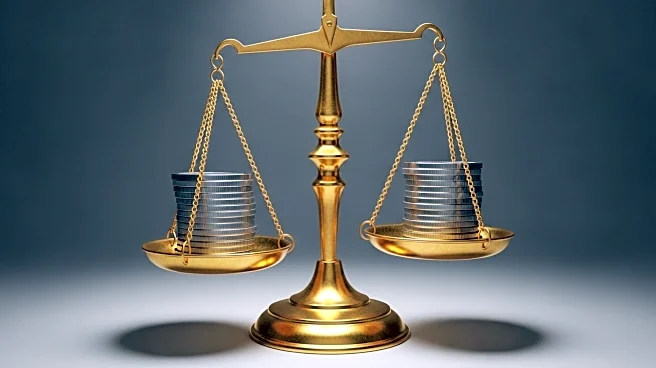What's Happening?
A federal appeals court has ruled that President Trump's imposition of tariffs using emergency powers was illegal, but has allowed them to remain in place temporarily. The court found that Trump exceeded his authority under the International Emergency Economic Powers Act (IEEPA), a decision that upholds a previous ruling by a federal trade court. The tariffs, which were applied broadly to imports from numerous countries, were part of Trump's strategy to protect the U.S. economy and pressure foreign nations into trade agreements.
Why It's Important?
The ruling is a major legal setback for Trump's trade policies, which have been a cornerstone of his economic strategy. The decision could lead to significant changes in U.S. trade policy and impact international relations. Businesses affected by the tariffs may experience uncertainty, as the ruling challenges the legality of the tariffs but does not immediately remove them. This situation underscores the complexities of using emergency powers for economic measures and may prompt Congress to reassess its role in regulating trade.
What's Next?
The Trump administration has until mid-October to appeal the decision to the Supreme Court. If the tariffs are ultimately struck down, it could lead to refunds of import taxes and alter the U.S. Treasury's revenue. The ruling may also influence future legislative actions regarding presidential authority in trade matters, potentially leading to more stringent oversight by Congress.
Beyond the Headlines
The case highlights the broader implications of presidential powers and their limits, particularly in economic policy. It raises questions about the balance between executive authority and legislative oversight, and the potential for legal challenges to reshape policy decisions. The outcome could affect how future administrations approach trade and economic emergencies.











